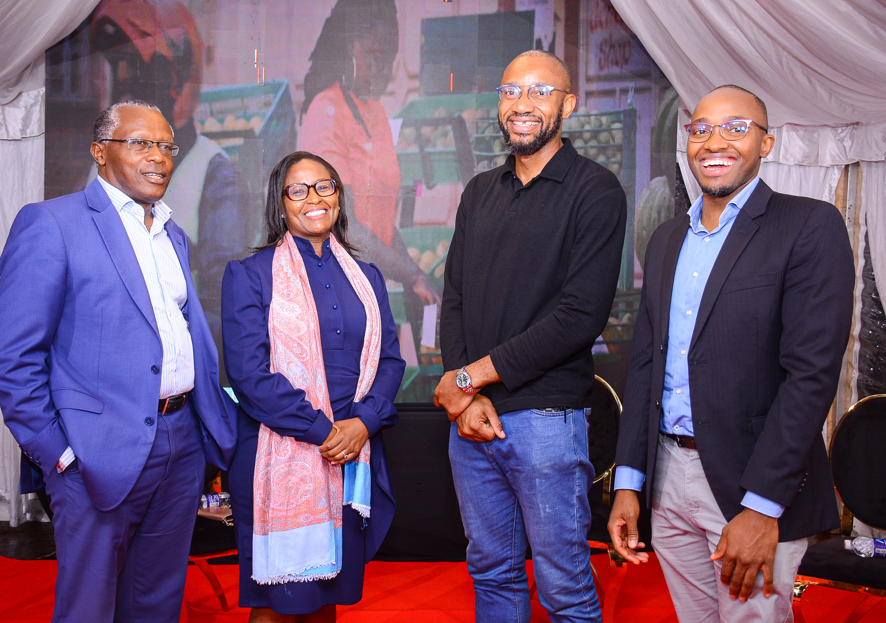Leaders in the healthcare and insurance sector are advocating for connection and collaboration to deliver change in healthcare through innovation.
This call for a new approach to healthcare delivery is championing the utilisation of technology to simplify, connect data and establish a new model that proactively addresses challenges in healthcare and creates opportunities to improve coverage by developing innovative, more affordable and personalised solutions.
Data connectivity has the potential to offer a comprehensive understanding of patient journeys, treatment paths, and health outcomes. By consolidating data points across the healthcare ecosystem, it equips healthcare professionals with the necessary information to enhance patient outcomes, simplify admin, and minimize costs.
At “The Digital Pulse” – CEO’s Roundtable event in Nairobi, hosted by M-TIBA, a leading health insurance technology platform, industry leaders underscored the pivotal role of data connectivity and collaboration in fostering a seamless healthcare ecosystem.
“With the technology, innovation, and capabilities we already have, I firmly believe we can significantly increase insurance uptake from just 3% through collaboration,” said Mr Pieter Prickaerts, Managing Director of M-TIBA.
“Connected data should be at the heart of everything we do. The direct connection with the individual empowers easy and transparent insights into their health coverage. For insurance companies, the connection with the individual means there is real-time customer feedback and real-time data insights, enabling them to better serve their customers. Ultimately, translating to easier access of care for individuals.”
The roundtable provided a platform for candid discussions on the role of connected data and technology in improving the healthcare sector and unlocking opportunities.
Harnessing the power of data leads to a greater, positive impact on a broader spectrum of individuals seeking care, with opportunities continuing to expand. For instance, enhanced data connectivity and data-driven workflows can expedite the preparation of injectable medication, with a comprehensive understanding of the patient’s medical history being paramount.
“Collaboration unlocks a greater potential. By working together we will simplify the healthcare journey, deliver solutions more efficiently, and leverage a more connected network of data and technology. This will allow all stakeholders to unlock opportunities to benefit the patient, without having to reinvent the wheel independently.” emphasized Dr. Kanyenje Gakombe, CEO of Metropolitan Hospital.
Technological advancements such as Artificial Intelligence (AI) are considered essential tools for overcoming operational challenges and driving growth within the healthcare sector. Embracing innovation allows healthcare facilities and insurers to drive smarter processes, enhance efficiency, and elevate the overall customer experience.
“The convergence of data and connectivity in transforming healthcare delivery is crucial. We must explore opportunities for leveraging data, including big data, and connectivity to transform healthcare, aiding precision and predictive medicine,” stated Mr. Ikechukwu Anoke, CEO of Zuri Health.
Connected data enables healthcare providers to access comprehensive information about patients, including health records, medications, reported symptoms, medical visits, and hospitalizations, providing insights into patients’ health journeys and risk factors. Data analytics and AI play a vital role in (pre-)identifying at-risk individuals requiring chronic disease management services, leading to improved health outcomes and reduced costs.
“Leveraging industry-wide data is paramount. Collaboration extends beyond partnerships to include competitors. By listening to competitors and analyzing industry trends and challenges, we can identify growth opportunities. For instance, technology integration and data sharing have aided in combating fraud and enhancing product development,” highlighted Ms Catherine Bosire, Managing Director of Wingspan Consultancy.
“Health insurers may lack expertise in areas such as Artificial Intelligence (AI). Therefore, partnerships with specialists in these fields are crucial. In preventive healthcare, chronic condition management, and member screening, relying solely on internal capabilities is inadequate.”
Read: Health Effects Of Smoking Oris Cigarettes
>>> Travel Insurance is Crucial When Planning Your Trip












Leave a comment